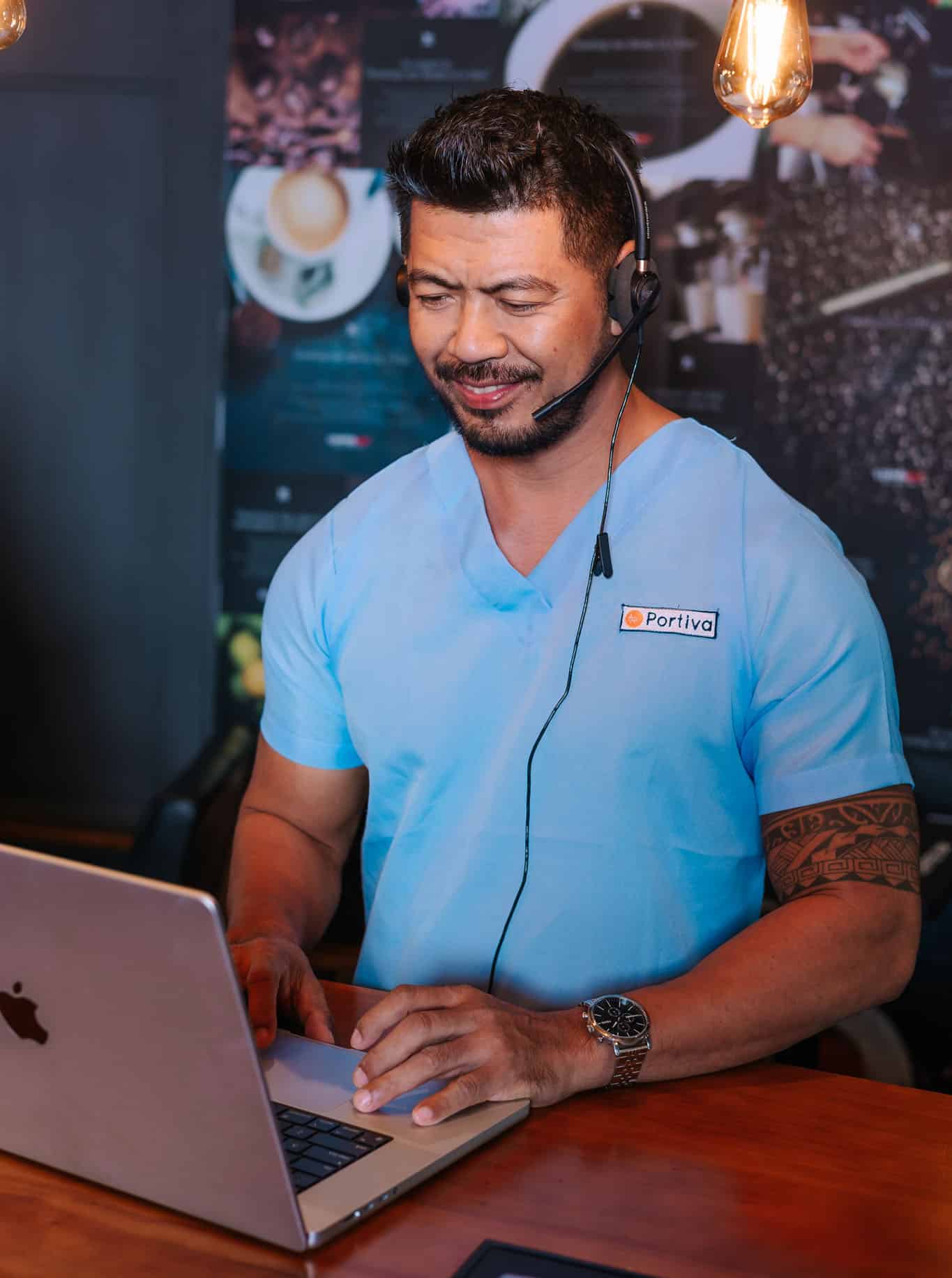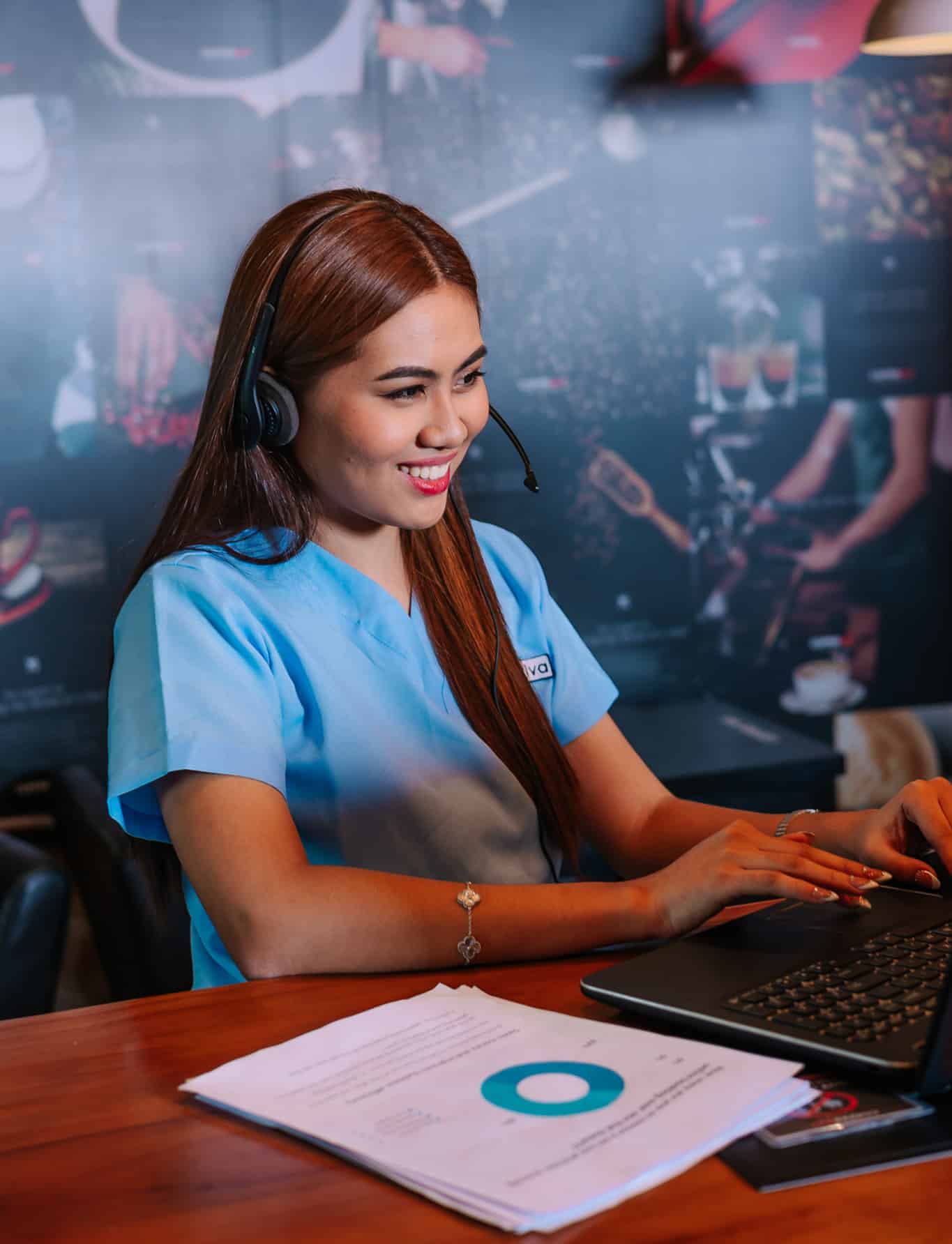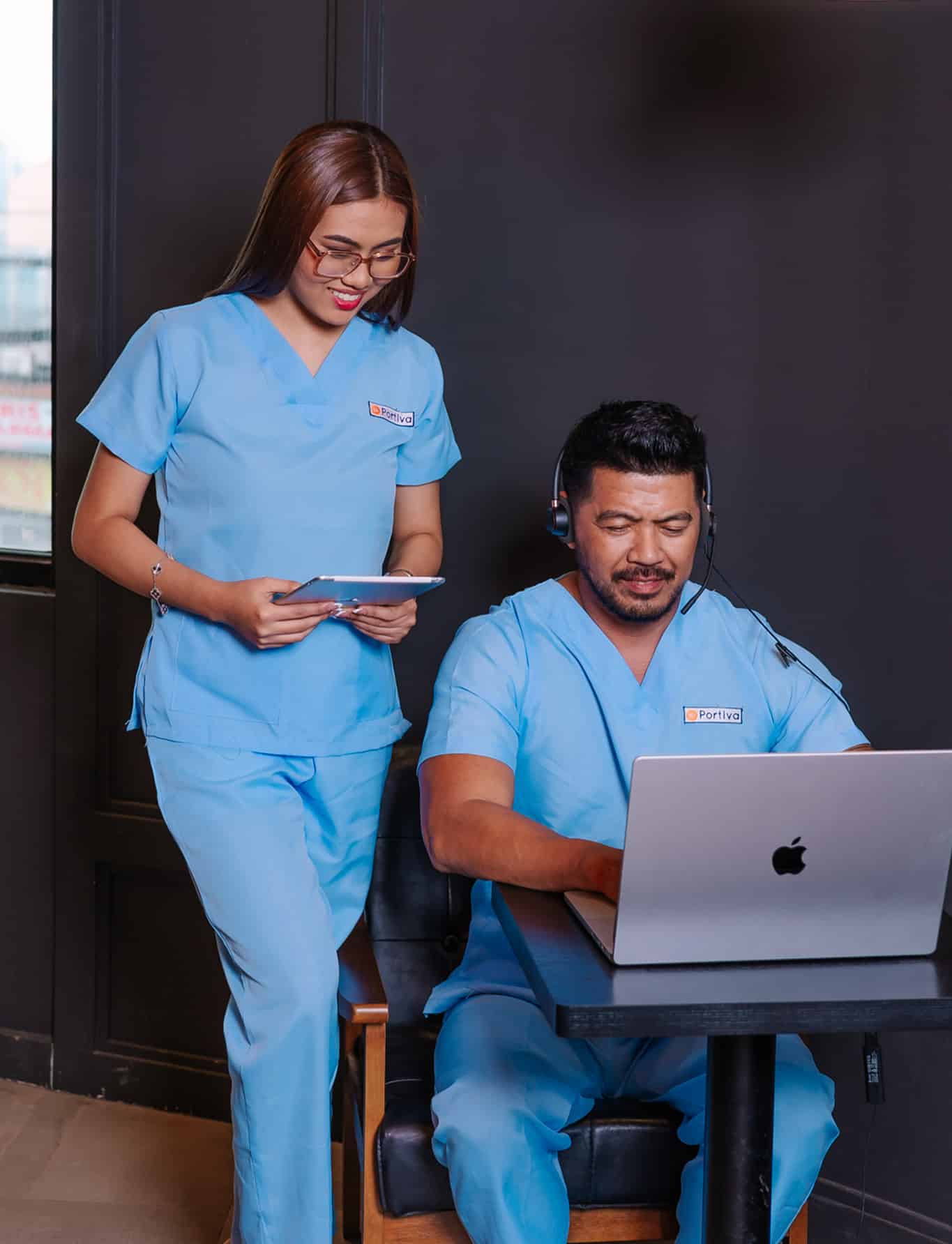Page contents
Get more done with less stress and pay only $10/hour.
A virtual medical assistant can help!
Get more done with less stress and pay only $10/hour. A virtual medical assistant can help!
See how Portiva is making a real difference in medical practices through our clients’ experiences. Watch this short video to see the impact for yourself, and let’s talk about how we can help streamline your operations and improve patient care today!
Businesses thrive with solutions that drive success and transformation. Clients achieve their goals, streamline operations, and see real results. Join them and experience the difference today!
Healthcare professionals increasingly rely on remote medical assistants for insurance verification, improving billing accuracy and efficiency. By handling administrative tasks, assistants free up physicians and staff to focus on patient care instead of paperwork.
Additionally, remote assistants provide real-time documentation, giving physicians instant access to patient records during appointments. This eliminates the need to search through extensive files, streamlining care and enhancing overall treatment quality.
The process validates that a patient is eligible for insurance coverage and that the patient’s policy covers the medications, procedures, or services provided.
The difference between insurance authorization and insurance verification is that insurance authorization is the process of getting prior authorization from an insurance company to cover an amenity. This is usually done to ensure that the patient and physician are reimbursed promptly. The process validates that a service has been approved and will be sheltered under the patient’s policy. This is usually done before an appointment to ensure it is included in the coverage and will only change when the policy is updated or modified.
Verifying patient insurance benefits ensures proper reimbursement and prevents coverage issues. It reduces denied claims, improves cash flow, and enhances patient satisfaction by avoiding surprises. Front office staff or nurse virtual assistants should confirm insurance before appointments.

Portiva’s Virtual Medical Assistant Services optimize workflow, handle administrative tasks, and improve patient care efficiently.
The steps for verification vary depending on the provider and the patient’s insurance plan. Some offices require a person to present their policy ID, while others will not. Other health plans require a lot of authorizations for various procedures and prescriptions, while others have a more lenient rule. However, included are some of the basic steps:

A key duty of a remote medical assistant is confirming patient information to ensure coverage under the correct insurance plan. This involves collecting the insurance ID, policy number, group number (if applicable), and the policyholder’s details. Confirming eligibility is easiest using the insurance ID, which includes a contact number for confirmation. All gathered data should be recorded with the patient’s full name and date of birth.
Patient insurance plans often change, so confirming the patient’s insurance information before every visit is essential. Remote assistants can efficiently handle this task, giving providers more time for patient care. Proper verification not only improves cash flow and reduces denials but also enhances patient satisfaction.


After confirming patient information, the next step is to contact the insurers to confirm eligibility using the patient’s name, date of birth, and policy number. The payer verifies coverage and may issue a confirmation number for claims processing.
Since missing data is a common cause of claim denials, remote assistants check primary and secondary payer records to ensure all information is current. They update providers on eligibility and potential costs and secure pre-authorization before treatment.
Confirming insurance coverage is complex, as policies vary in what they cover and at what percentage. Even if a service is covered, patients may still owe deductibles, copayments, or coinsurance. Remote medical assistants streamline this process by checking real-time coverage, allowing physicians to focus on care. Since insurance policies frequently change, staying updated ensures accurate benefit confirmation.

Remote medical assistants ensure accurate, real-time documentation and handle insurance information efficiently, helping streamline billing and reimbursement. They also validate key details like the patient’s deductible, ensuring transparency in costs before appointments. Additionally, they assist with scheduling follow-ups, sending appointment reminders, and rescheduling when needed. This improves patient experience, enhances provider satisfaction, and supports efficient healthcare operations.
Remote medical assistants have become increasingly popular in recent years, as they offer several benefits for healthcare professionals, including eligibility verification. For starters, a remote medical scribe can help improve the accuracy of billing and verification processes, ensuring no important details are missed during eligibility verification—especially when determining if a patient is out of network.
Using remote medical assistants can help improve the accuracy and efficiency of billing, insurance information, and verification processes. This can ultimately lead to improved care and better outcomes for every person providing care or seeing the physician.
When it comes to real-time documentation, providing quality patient care is essential.
By having virtual administrative medical assistants on hand, physicians can improve the accuracy and efficiency
of their billing and eligibility verification processes. Assistants can also provide real-time documentation of patient encounters, which can help improve overall patient care.
Real-time documentation can be especially beneficial for critical patients. By having accurate and updated information about a patient's condition, physicians can make more informed decisions about their care. This can help to improve patient outcomes and reduce the risk of medical errors.
Real-time documentation also helps ensure that all healthcare team members are updated on a patient's condition. This is particularly crucial when individuals are transferred between different units or hospitals. By having access to accurate information, physicians can minimize the risk of any potential complications.
Overall, real-time documentation provides many benefits for both patients and physicians. By ensuring that all healthcare team members are updated following eligibility verification and documentation, we can help improve the quality of patient care.

Healthcare professionals are turning to remote medical assistants for verification, as they can improve the accuracy of information entered into insurance databases, reduce time spent waiting for reimbursements from the insurance company through accurate eligibility verification, and help ensure that patients receive the best possible care through accurate eligibility verification. These efficiencies directly enhance a practice’s financial performance by minimizing errors and reducing claim rejections.
Remote medical assistants can identify and prevent denied reimbursement and rejected claims by accurately verifying a patient’s insurance coverage, eligibility check for financial resources, and overall financial responsibility before providing medical services. They also handle complex and difficult-to-verify claims, reducing the risk of costly mistakes.
Additionally, taking advantage of remote assistant service providers with expertise like Portiva can positively impact your bottom line.
Finally, the vast amount of data stored in hospital databases is a goldmine for hackers, who can sell it for a hefty profit on the black market.
Cybersecurity risks make eligibility verification crucial for protecting digital identities and ensuring accurate, secure information. While built-in safeguards help, they can be time-consuming. Hiring a remote assistant company like Portiva keeps healthcare data safe and up to date while verifying patient eligibility and financial responsibility for seamless billing. Insurance verification is key to a successful healthcare organization and better patient care. Remote assistants also handle real-time documentation, improving efficiency. With certified, well-trained remote assistants like Portiva, organizations can ensure steady revenue and higher patient and employee satisfaction. Portiva also caters to law enforcement transcription, medical transcription dictation services, medical transcription outsourcing, radiology transcription services, and transcription companies. Call us at (223) 323-8285 or visit us at portiva.com to learn more.